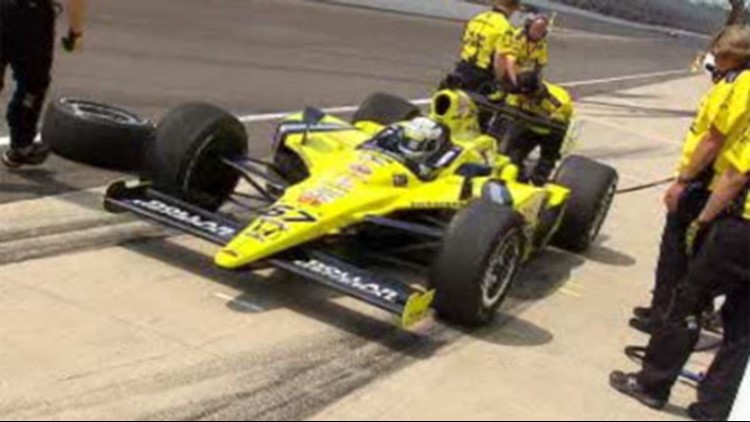INDIANAPOLIS - Doctors also want to warn you about an injury you can get at the track that you might not realize for years to come.
Local hospitals are scheduling extra staff in preparation of this weekend's Indianapolis 500. The medical center at the heart of the Indianapolis Motor Speedway will be the busiest ER in the state Sunday, caring not only for the drivers and staff, but also the fans.
The sounds of the track - and resulting vibration - are part of the experience. From the bagpipes to the concerts and, of course, the engines, the noise is pervasive, making it hard to hold a conversation.
"It's really loud," said Cameron Russell of Franklin. "Somebody was talking to me about something and I couldn't hear him and we had to wait until the cars went by and passed the corner."
Noise levels are measured in decibels. The higher the decibel and the longer you are exposed, the higher the risk of hearing damage.
"An IndyCar, NASCAR, Formula One, you read things, they are rated about 140 decibels, roughly right at the car. Aircraft taking off would be at 180 decibels and lawnmowers and such that are 90-100 decibels, so they are getting loud. Firearms, fireworks are about 130-140 decibels," said Dr. Chris Miyamoto, an otolaryngologist at St. Vincent Hospital.
Dr. Miyamoto says exposure to that level of decibels for 15 minutes can lead to hearing loss.
Those who work at the track know about the noise dangers and wear protective gear. The advice is for fans to cover up, too.
"We roll this up and always roll it. Pull on your ear and then insert it and hold it for about 20 or 30 seconds," Dr. Miyamoto said, demonstrating ear plugs. "This will dampen noise about usually 30 decibels."
Four-year-old Isaac Mulder was suited up for Carb Day with an IZOD IndyCar Series jacket and new ear buds.
"We tried momentarily without the ear buds, but it just didn't work out. So we sprung for the earplugs right away and he's had a great day," said his mother, Angela.
"So you can go to the race and have your ears ring the next day, you've had some damage. But if you keep doing that over and over, you are going to get sustained damage to your hearing and so a good saying in the field is, you can wear earplugs, or you can wear hearing aids later," Dr. Miyamoto said.
Earplugs at IMS are about $2. Regardless of your age, they are recommended by the doctor for not only the Indy 500, but for the NASCAR race this summer.



